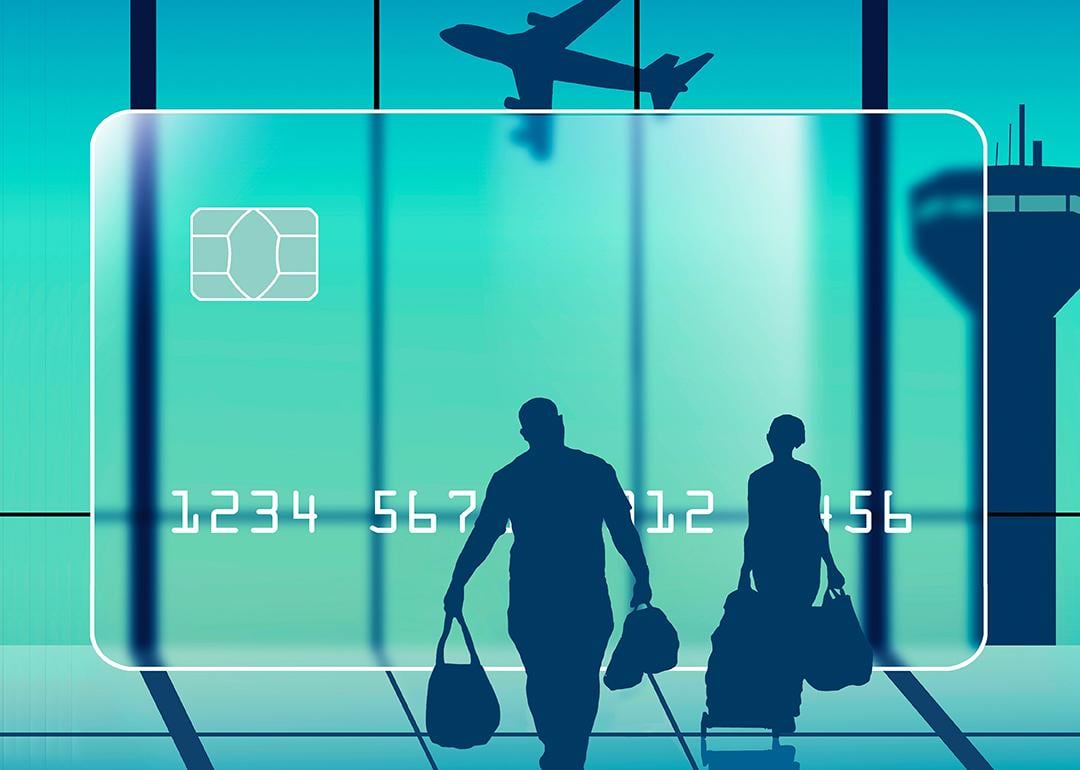
America’s $300B travel secret: Why millions don’t know they’re sitting on a fortune
America’s $300B travel secret: Why millions don’t know they’re sitting on a fortune
When Cortney Clegg wanted to take her family to Costa Rica, she braced herself for sticker shock. She hoped to mitigate some of the cost by using the points she’d accumulated from her credit cards, but she was surprised to find she had more than enough to cover all of the flights — and then some. “We ended up getting six flights for 136,000 miles total,” she says. “It was like finding $6,000 I didn’t know we had.”
The windfall was so substantial that Clegg could upgrade her family’s hotel and even bring along her in-laws. “I was absolutely shocked that we could book this trip using the points and miles that we already had. I had thought it would take us years to save up for it.”
Clegg’s story isn’t unique — it’s symptomatic of a blind spot in American personal finance, point.me reports. A recent survey of 2,000 Americans reveals that many are sitting on substantial travel wealth they are unaware of.
The Great American points blind spot
While 71% of Americans carry points-earning credit cards, many are not keeping tabs on the points they earn.
- 34% have no idea how many points they actually have
- 66% drastically undervalue their points, thinking 75,000 points is worth less than $750
- 23% collect points completely passively, never actively trying to maximize their earning
But here’s the kicker: Those 75,000 points most people think are worth less than $750? That’s the minimum those points are worth. They could actually fund a business class award ticket to Asia worth well over $2,200, or cover three to four economy flights to Europe.
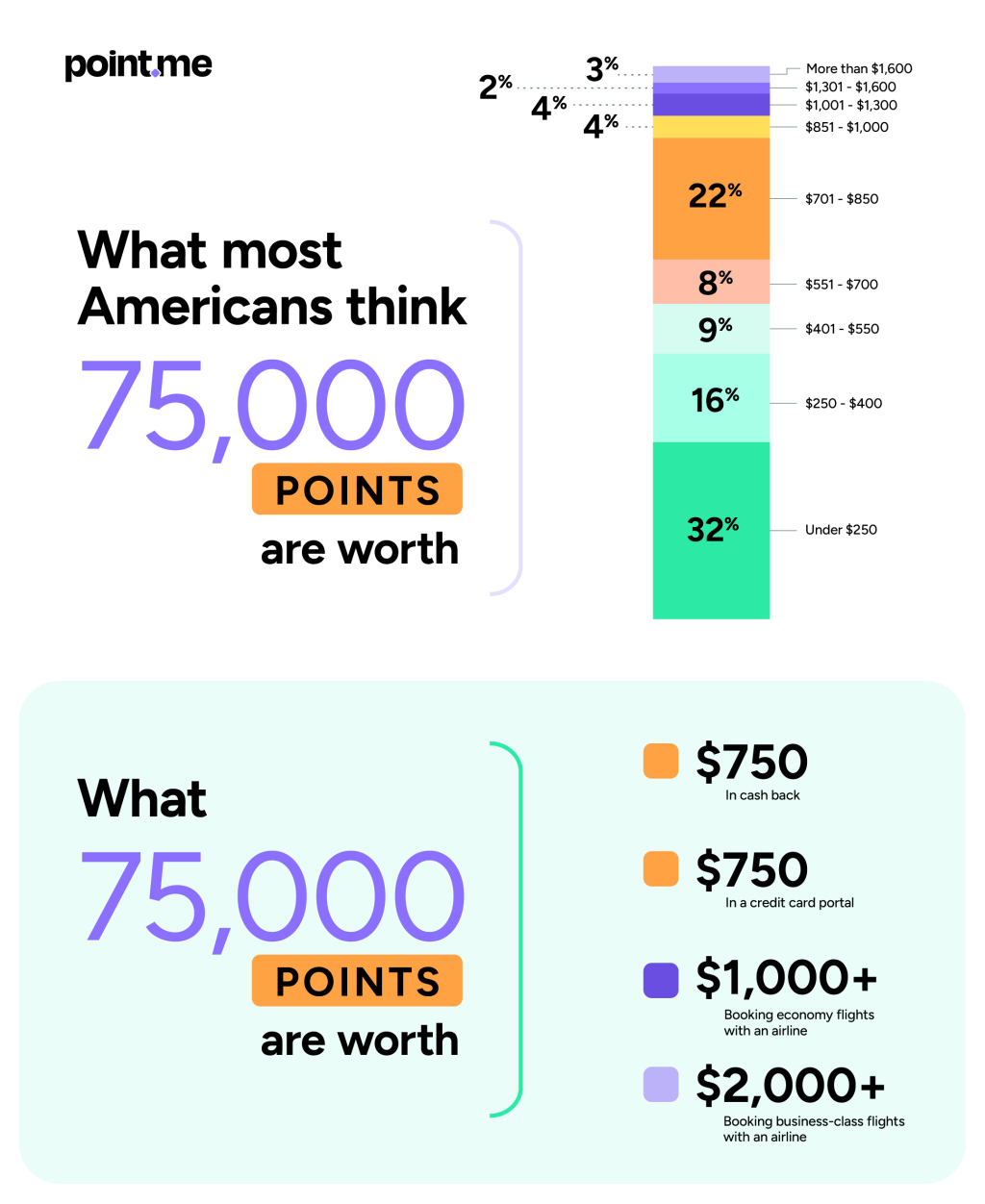
The hidden travel wealth breakdown
Among Americans who do know their points balance:
- 23% have enough for a one-way flight to Europe in economy
- Nearly 40% have enough for domestic flights within the U.S.
- Many are unknowingly sitting on thousands of dollars in travel value
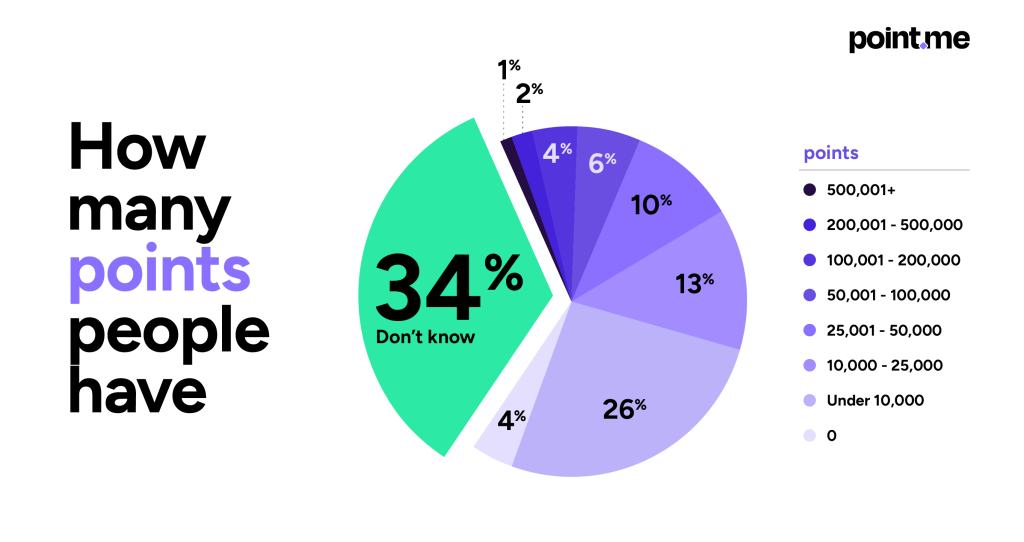
The awareness gap is so massive that an estimated $300 billion in award points are issued every year, but redemption rates remain surprisingly low. In 2018, McKinsey estimated that 30 trillion unredeemed airline miles exist globally — enough for almost every adult in the U.S. to fly to Europe in business class.
Points as economic insurance
In an era when 55% of Americans are canceling or delaying travel due to economic conditions, points represent something powerful: financial security in uncertain times, while 31% of consumers are canceling trips entirely this year due to economic concerns.
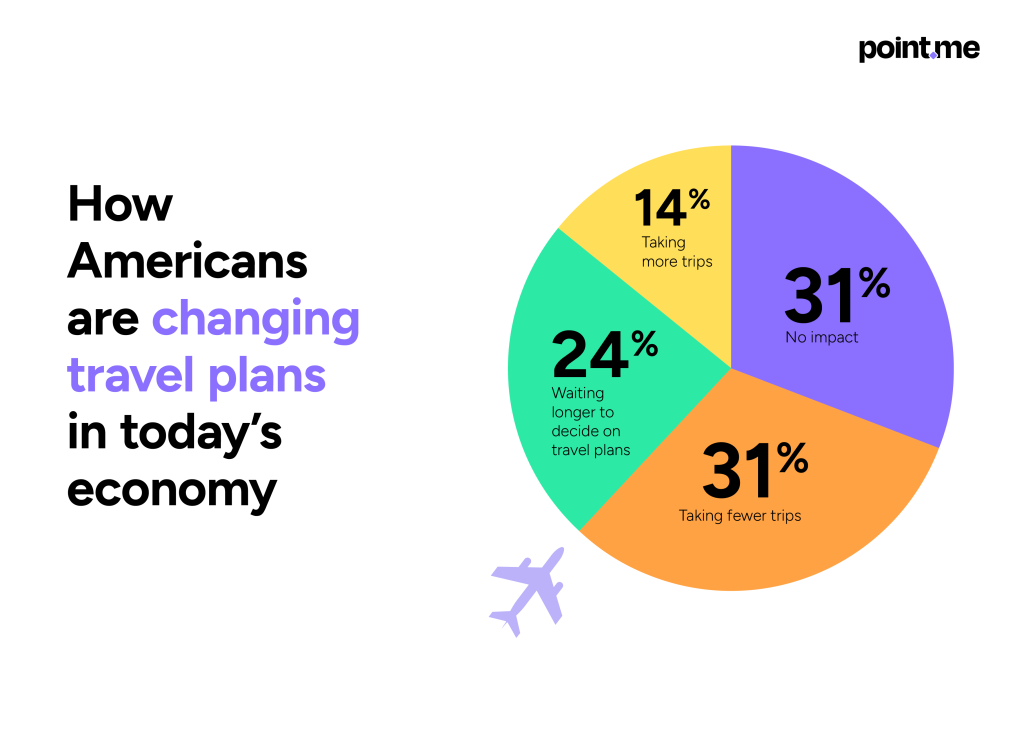
While consumers are feeling the pinch, points and miles can provide a bit of financial security and help consumers outsmart inflation and uncertainty. Instead of canceling plans outright, savvy consumers are leaning on loyalty programs to stay mobile.
The reinvestment revolution
Perhaps most telling is what happens when people unlock their points wealth: They don’t just save money — they transform their entire travel experience.
Sixty-five percent of Americans reinvest their points savings into other parts of their trip.
Nearly half (48%) of all Americans put at least a quarter of their savings back into the trip.
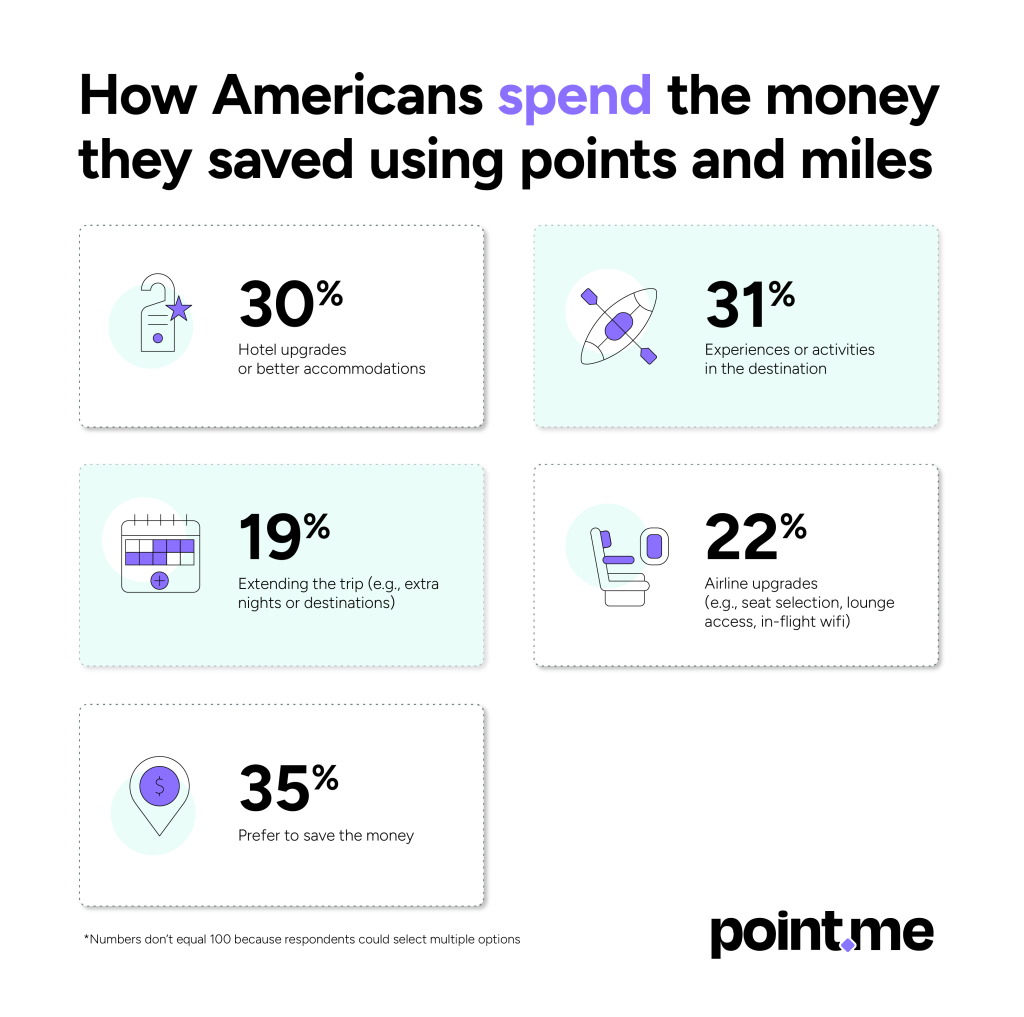
Where does that reinvestment go?
- Hotel upgrades or better accommodations: 30% of Americans
- Experiences and activities: 31% of Americans
- Flight upgrades: 22% of Americans
- Trip extensions: 19% of Americans
Points don’t just make travel affordable. They can also make it luxurious.
The psychology of travel wealth
Why do so many Americans remain unaware of their points wealth? The answer lies in perception.
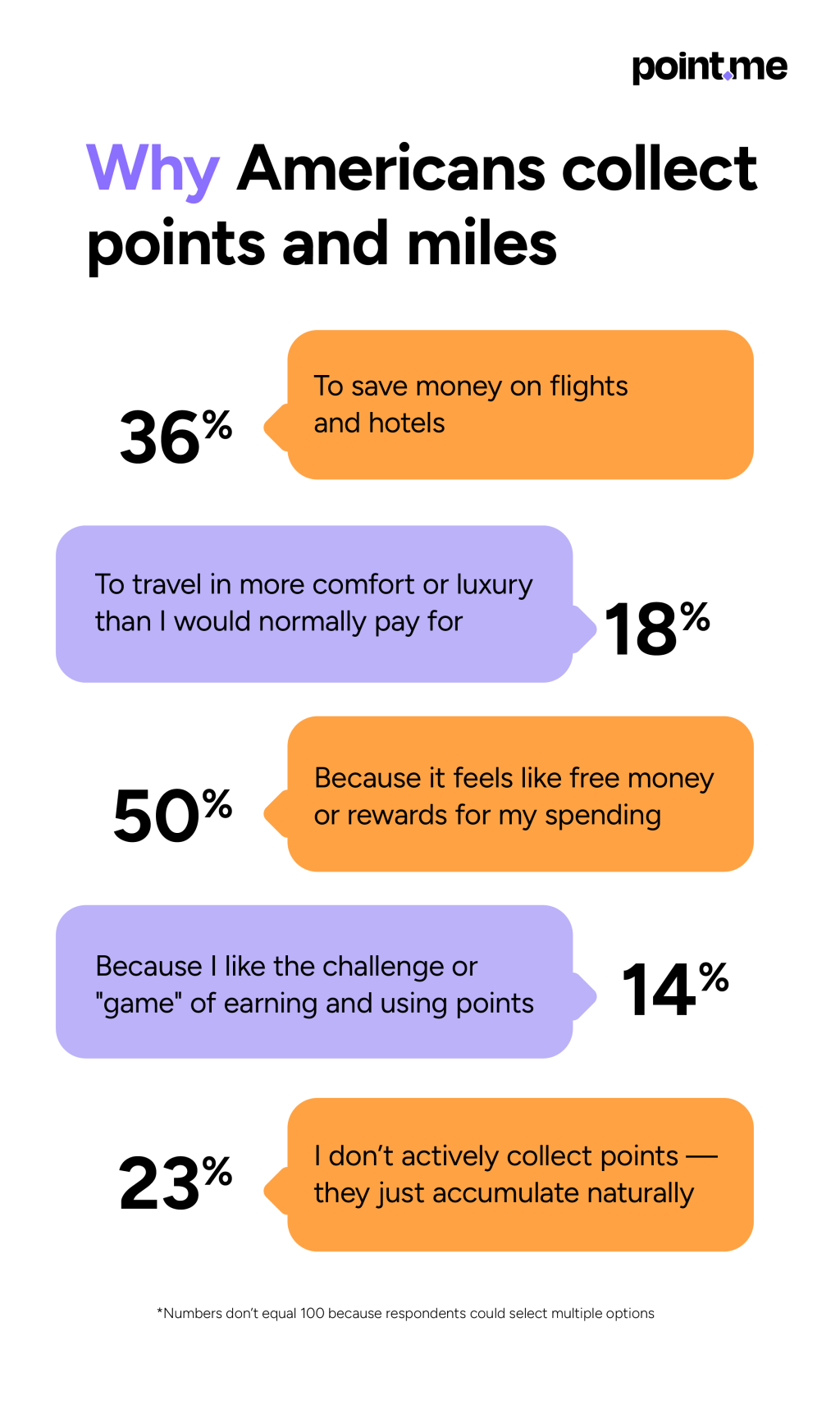
Half of Americans (50%) view points as “free money or rewards for spending” — a nice bonus rather than legitimate financial assets. Only 18% of the general population sees points as a way to access luxury travel experiences.
This psychological barrier keeps billions in travel value dormant. People who think they “can’t afford” that dream European vacation or luxury resort getaway are often already holding the key to exactly those experiences.
The hidden economy emerges
What we’re witnessing is the emergence of a parallel travel economy — one where your purchasing power isn’t determined by your bank account, but by your points balance.
In this hidden economy:
- Everyday spending becomes luxury travel funding
- Economic uncertainty matters less when you’ve pre-funded your trips
- The biggest barrier isn’t cost; it’s awareness
As Cortney Clegg discovered, the difference between thinking you can’t afford a trip and booking a dream family vacation can be as simple as understanding what you already own.
This story was produced by point.me and reviewed and distributed by Stacker.



